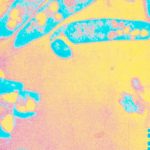Lien vers Pubmed [PMID] – 28322927
Biochimie 2017 Mar;
Phenolic glycolipids (PGL) are polyketide synthase products that are uniquely produced by a subset of pathogenic mycobacteria and are displayed at the bacterial cell surface, in a strategic position to interfere with host immune cells. Their expression has been associated with enhanced mycobacterial virulence in vivo, and suppression of the inflammatory responses of host phagocytes in vitro. In this review, we will present our current understanding of the mode of operation of PGL, along with functional evidence that demonstrates the evolutionary advantage conferred by PGL production for host cell invasion, intracellular persistence and evasion of host immune and bactericidal responses.


